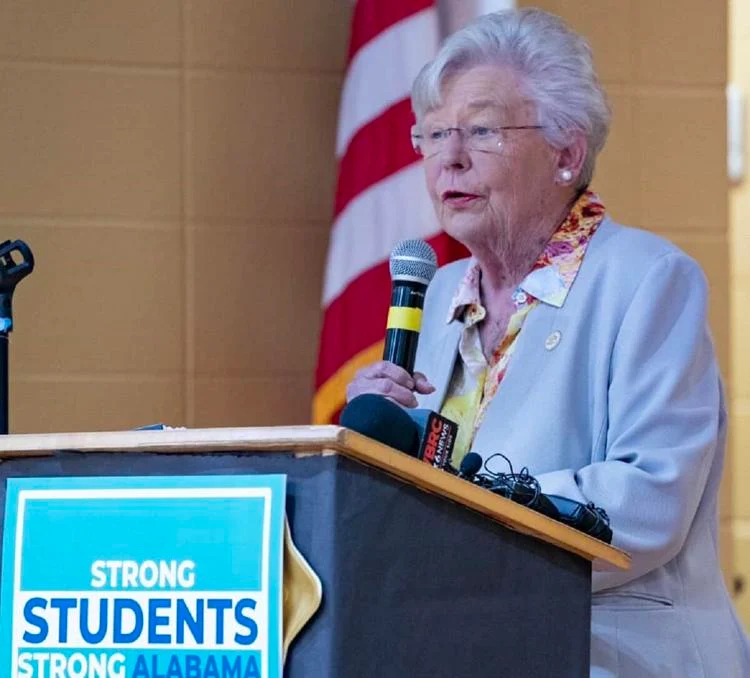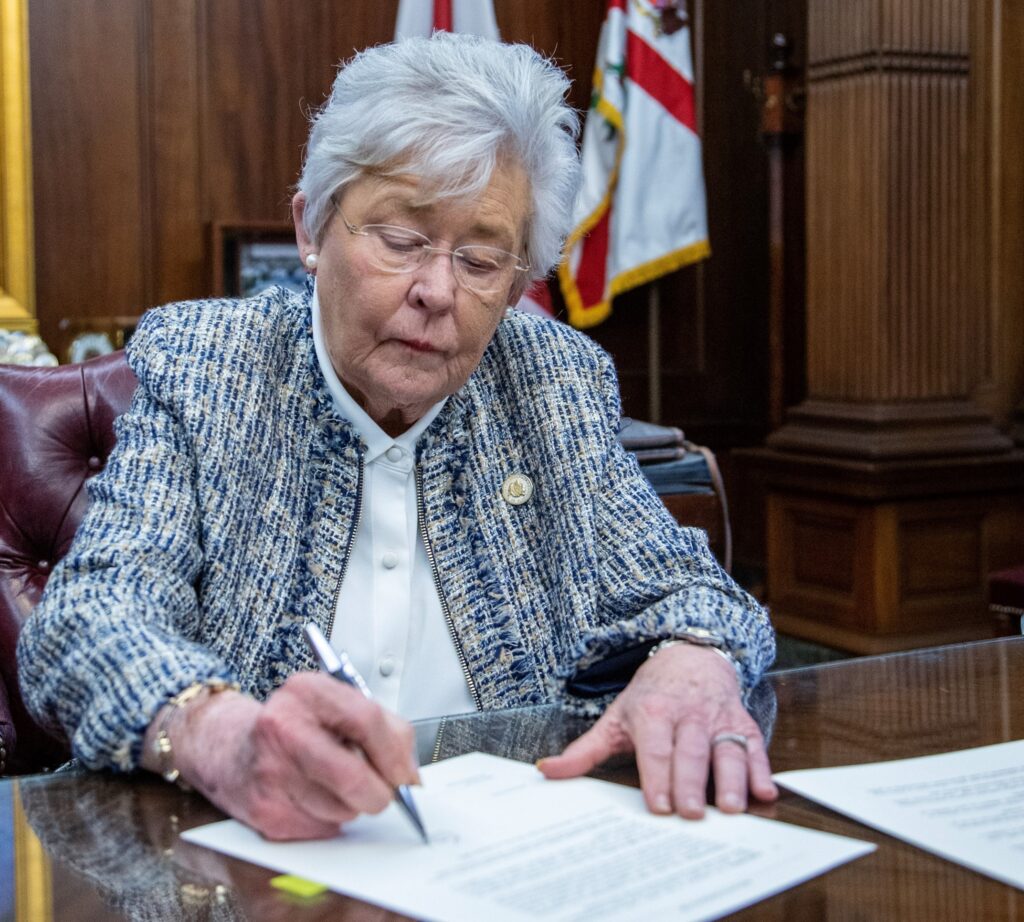Report recommends changes to Alabama’s education system

Recommendations have been made to improve education at the student and educator levels in Alabama by the Governor’s Commission on Teaching and Learning. The state should promote quality teaching and learning, offer more support for both impoverished and low-performing schools, bolster data collection and accountability, and improve the retention and development of educators, the report says. “These recommendations won’t just serve as mere guidelines; they are a blueprint – a roadmap to our goal of positioning Alabama among the top 30 states on the National Assessment of Educational Progress, or NAEP, which is known as the nation’s report card,” Gov. Kay Ivey said in a release. “They are vital guidelines as we navigate toward a brighter future for our children – one where opportunities flourish and aspirations are nurtured.” The commission recommended full implementation of the Alabama Literacy Act passed in 2019, which requires third graders to read on grade level before being advanced to fourth grade. It also recommended that kindergarten be mandatory, an expansion of the number of assistant principals at schools, and more computer science programs. The commission said in the report that the state’s prekindergarten program should be expanded to help poorer school districts. It also recommended creating a financial incentive program for struggling school districts to reduce chronic absenteeism. Another key item from the commission was the expansion of the state’s Turnaround Schools program, which pours personnel and money into struggling school districts to help them improve scores. The commission said the state Board of Education should change the state’s report card for districts and individual schools to expand transparency and ensure that every graduating high school student is considered college and career ready measured by an examination. The commission consisted of: • Business Education Alliance President and former State Superintendent of Education Joe Morton. • State Superintendent Eric Mackey. • State Sen. Donnie Chesteen, R-Geneva. • State Rep. Alan Baker, R-Brewton. • State Rep. Barbara Drummond, D-Mobile • Montgomery City Schools Superintendent Melvin Brown. • Wetumpka High School Principal Kyle Futral. • Mountain Brook Schools Superintendent Dicky Barlow. • Booker T. Washington teacher Reggie White. • Alabama Parent Teacher Association President Donna McCurry. • Alabaster City Schools School board member Derek Henderson. • Retired Mississippi State Superintendent Carey Wright. • Whiteboard Advisors CEO, and co-founder, Ben Wallerstein. Republished with the permission of The Center Square.
Kay Ivey signs four executive orders to address education crisis

On Wednesday, Governor Kay Ivey released four new executive orders related to public education. The executive orders are intended to achieve Gov. Ivey’s inauguration day vow to get Alabama’s public school performance among the top 30 in the country. “I am proud to sign these executive orders into effect and believe they will lay an essential foundation for ensuring every Alabama student receives a high-quality education,” said Governor Ivey. “This is the first of many steps I plan to take in this new term to increase Alabama’s national ranking in our student’s reading and math performance. Our children are our future, and by investing in their education, we are investing in a better Alabama.” Alabama has poor-performing public schools. Far too many of Alabama’s public school students can’t do grade-level math, and far too many of Alabama’s children don’t read at grade level. The state has shown some recent improvement in state rankings, but this largely had more to do with other states’ performance dropping – due to extended COVID-19 school closures; than it has with more Alabama children mastering their studies. Executive Order 729 is intended to promote early literacy by establishing a statewide network with books from Dolly Parton’s Imagination Library. Ivey has authorized $4.1 million for the roll-out of the program. As promised in her inauguration speech, every Alabama child will begin receiving age-appropriate books by mail each month from birth until the age of five. Parents may opt their child out at any time. Executive Order No. 730 establishes the Governor’s Commission on Teaching and Learning. The commission will examine ways to enhance the quality of elementary and secondary education in Alabama and will produce a report of recommendations by December 1, 2023. The Members of the commission include: · Business Education Alliance President and former State Superintendent of Education Dr. Joe Morton (Chair) · State Superintendent of Education Dr. Eric Mackey · State Sen. Donnie Chesteen (R-Dothan) · Rep. Alan Baker (R-HD66) · Rep. Barbara Drummond (D-Mobile) · Montgomery City Schools Superintendent Dr. Melvin Brown · Holtville High School Principal Kyle Futral · Mountain Brook Schools Superintendent Dr. Dicky Barlow · Booker T. Washington K-8 Teacher Reggie White · Alabama Parent Teacher Association President Donna McCurry · Alabaster City Schools Schoolboard Member Derek Henderson · Retired Mississippi State Superintendent Dr. Carey Wright · Co-founder and CEO of Whiteboard Advisors Ben Wallerstein Executive Order No. 731 directs the State Superintendent of Education to submit a report outlining past progress made to date as well as future action items to expeditiously ensure the implementation of the Literacy Act (2019), the Numeracy Act (2022), the Computer Science for Alabama Act (2019), a civics-test requirement (2017), and a requirement of the State Board of Education that every high school graduate obtain a college and career readiness indicator (2022). The reports are due June 30, 2023. Executive Order No. 732 established a K-12 teacher registered apprenticeship pilot program to increase pathways to the teaching profession. This pilot program will provide an additional pathway—initially, in areas with documented teacher shortages—for qualifying paraprofessionals and teacher’s aides to obtain a Class A or Class B teaching certificate by demonstrating competency in the classroom. The pilot program will be administered by the Alabama Office of Apprenticeship within the Department of Commerce. Gov. Ivey also sent a memo to Secretary of Early Childhood Education Dr. Barbara Cooper that directs the department to prioritize creating new First-Class Pre-K classrooms in counties where more than 20% of the population falls below federal poverty guidelines. Ivey hopes that increased access to Alabama’s nation-leading program will assist the state in reaching its education-based goals. Ivey signed three executive orders on Tuesday intended to improve government transparency and accountability. To connect with the author of this story, or to comment, email brandonmreporter@gmail.com.


